Gaza Ceasefire And Hostage Release To Start Friday

A pause in the Israel-Hamas war in Gaza will start on Friday morning with the first hostages to be released hours later, mediator Qatar said, after nearly seven weeks of fighting.
Families of hostages held by Hamas in Gaza and of Palestinians detained by Israel were forced to wait an extra day after the breakthrough four-day truce deal was put on hold.
Qatar, which facilitated the truce deal along with Egypt and the United States, said the pause would begin Friday at 7:00 am (0500 GMT) with the "first batch" of 13 civilian hostages being handed over about nine hours later.
The armed wing of Hamas, the Ezzedine al-Qassam Brigades, confirmed the ceasefire would start at 7:00 am under the deal that is also intended to provide aid to Gaza's 2.4 million residents struggling to survive with shortages of food, water and fuel.
"The truce applies for four days, starting from Friday morning, accompanied by the cessation of all military actions from the Qassam Brigades and the Palestinian resistance, as well as the Zionist enemy throughout the truce period," it said.
The office of Israeli Prime Minister Benjamin Netanyahu said it was in contact with the families of the hostages after receiving "a first list of names" for those due to be released. It did not specify who was on the list.
Instead of a pause, fighting raged on Thursday. Explosions were heard on an AFPTV livecam and heavy grey clouds hovering over the territory's north, much of which has been reduced to rubble.
"We've already been on an emotional roller coaster for 47 days. Today is no different," said Eyal Kalderon, a cousin of Ofer Kalderon, who is among those held captive in Gaza.
Hamas and other Palestinian gunmen seized about 240 hostages during unprecedented raids into Israel on October 7 which Israel says killed around 1,200 people, most of them civilians.
The attack prompted a relentless Israeli campaign of bombing and a ground offensive in Gaza, where the Hamas government says more than 14,100 people, also mostly non-combatants, have been killed.
Israel's national security adviser Tzachi Hanegbi had earlier indicated the phased release of at least 50 hostages in return for 150 Palestinian prisoners would still go ahead, but not before Friday.
On both sides it would free mostly women and people aged 18 and under. The Palestinians are to be freed from three Israeli jails.
Three Americans, including three-year-old Abigail Mor Idan, are among those earmarked to be freed.
Governments around the world have welcomed the deal, with some expressing hope it will lead to a lasting end to the war.
"This cannot be just a pause before the massacre starts all over again," Riyad Mansour, Palestinian ambassador to the United Nations, told the Security Council.
Israeli officials, however, say the truce will be only temporary.
"We are not ending the war. We will continue until we are victorious," Israel's chief of staff, Lieutenant General Herzi Halevi, told troops he visited in Gaza, according to the army.
The release deal came after weeks of talks involving Israel, Palestinian militant groups, Qatar, Egypt and the United States.
Israel's aerial bombardment continued overnight on targets in Khan Yunis, southern Gaza, sending red and yellow fireballs and immense columns of black smoke into the air.
Homes shook several kilometres (miles) away in Rafah, AFP journalists said.
"I think there are still about 20 people under the rubble," said one Palestinian looking for survivors under a destroyed building east of Khan Yunis.
Thousands of children have been killed in Gaza, "the most dangerous place in the world to be a child", said Catherine Russell, executive director of the UN children's fund, UNICEF.
Youngsters are among the estimated 1.7 million Gazans who, according to the UN, have had to flee their homes during the fighting.
Hospital patients have also been forced to move, the latest being 190 wounded and sick, along with their companions and medical teams, from Al-Shifa hospital on Wednesday, the Palestinian Red Crescent said.
Under pressure to back up its claims that Hamas had a command centre under Al-Shifa, Israel's military on Wednesday escorted journalists to a tunnel shaft which soldiers said was part of a vast Hamas underground military network.
The army led reporters into underground facilities with air-conditioning, a toilet and what looked like a kitchenette.
Hamas and medical staff have denied a command centre is under Al-Shifa, Gaza's largest hospital.
Israeli forces arrested Al-Shifa's director Mohammad Abu Salmiya and other medical personnel, another doctor told AFP on Thursday.
Since the Israel-Hamas war began, deadly exchanges of fire have gripped Israel's northern border, mainly between Israel and the Iran-backed Hezbollah movement.
These clashes have raised fears of a broader conflagration.
Hezbollah said Thursday that its chief, Hassan Nasrallah, met with Iran's Foreign Minister Hossein Amir-Abdollahian to discuss "the efforts made to end the Israeli aggression against the Gaza Strip".
In the Red Sea, the destroyer USS Thomas Hudner "shot down multiple one-way attack drones launched from Huthi-controlled areas in Yemen", United States Central Command said, referring to the Iran-backed rebel group.
Displaced Gazans remained sceptical about the Israel-Hamas deal.
Fatima Achour, a Palestinian lawyer in her 40s, burst into tears when she reached Egypt through the Rafah border crossing, becoming one of the few Gazans allowed to leave because she has a foreign passport.
"There's no city to go back to... There are no houses. Our lives have ended," she said. "This truce is not for us."
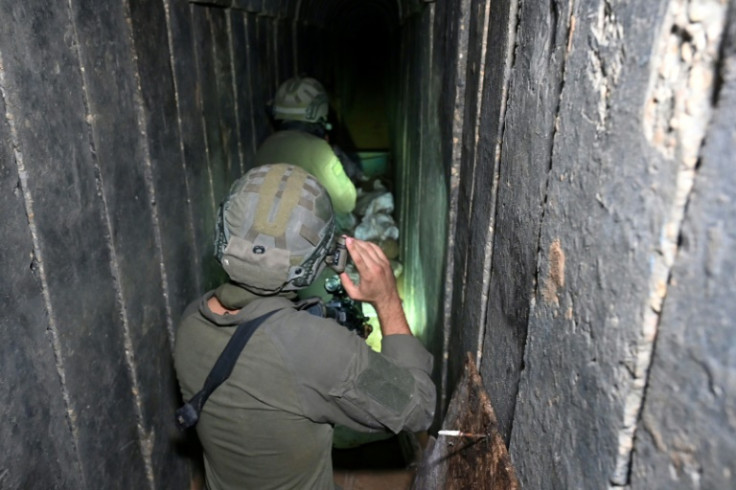
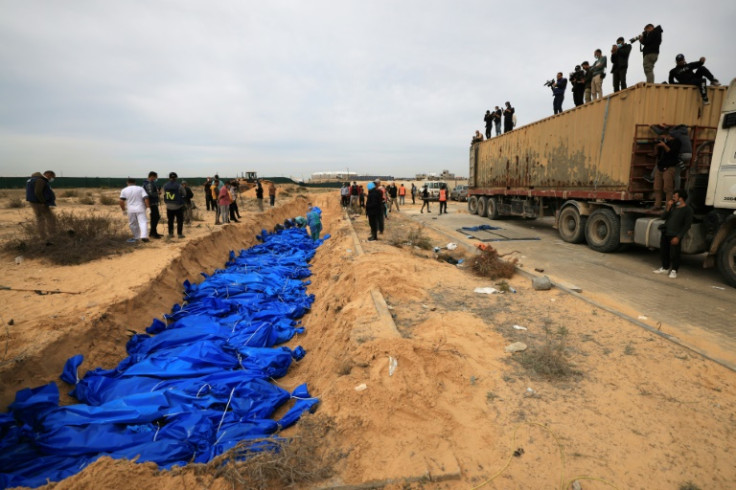

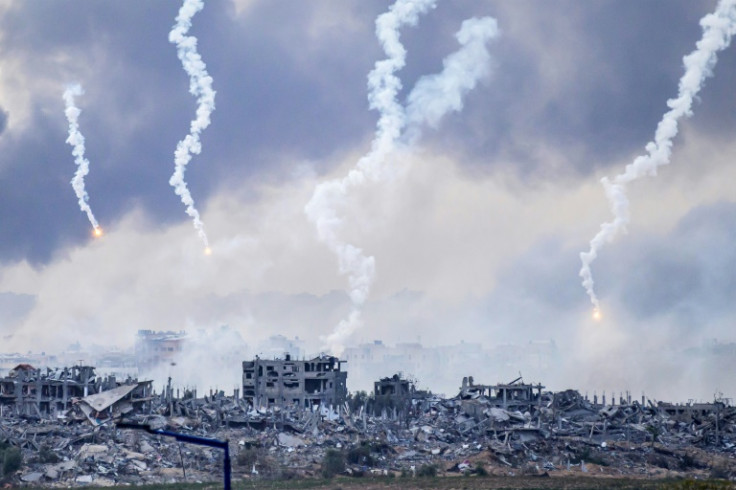
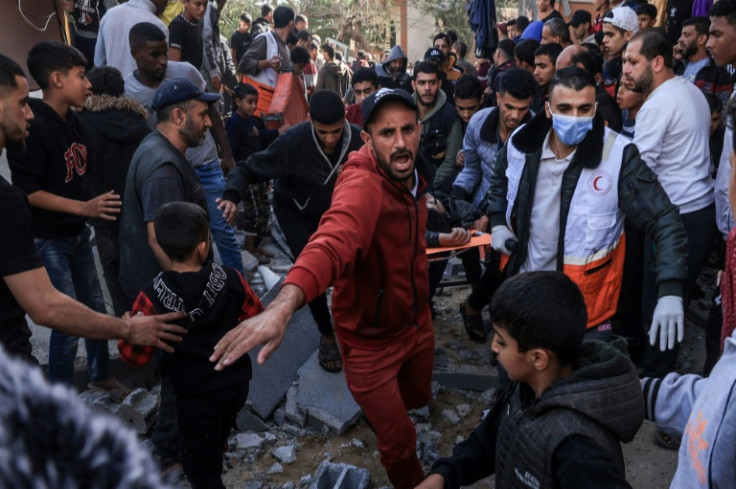
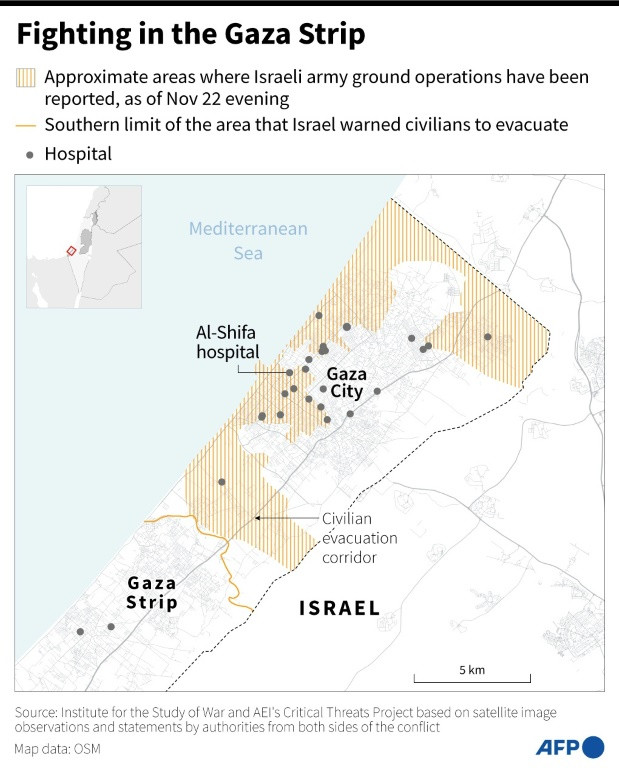
© Copyright AFP 2024. All rights reserved.





















